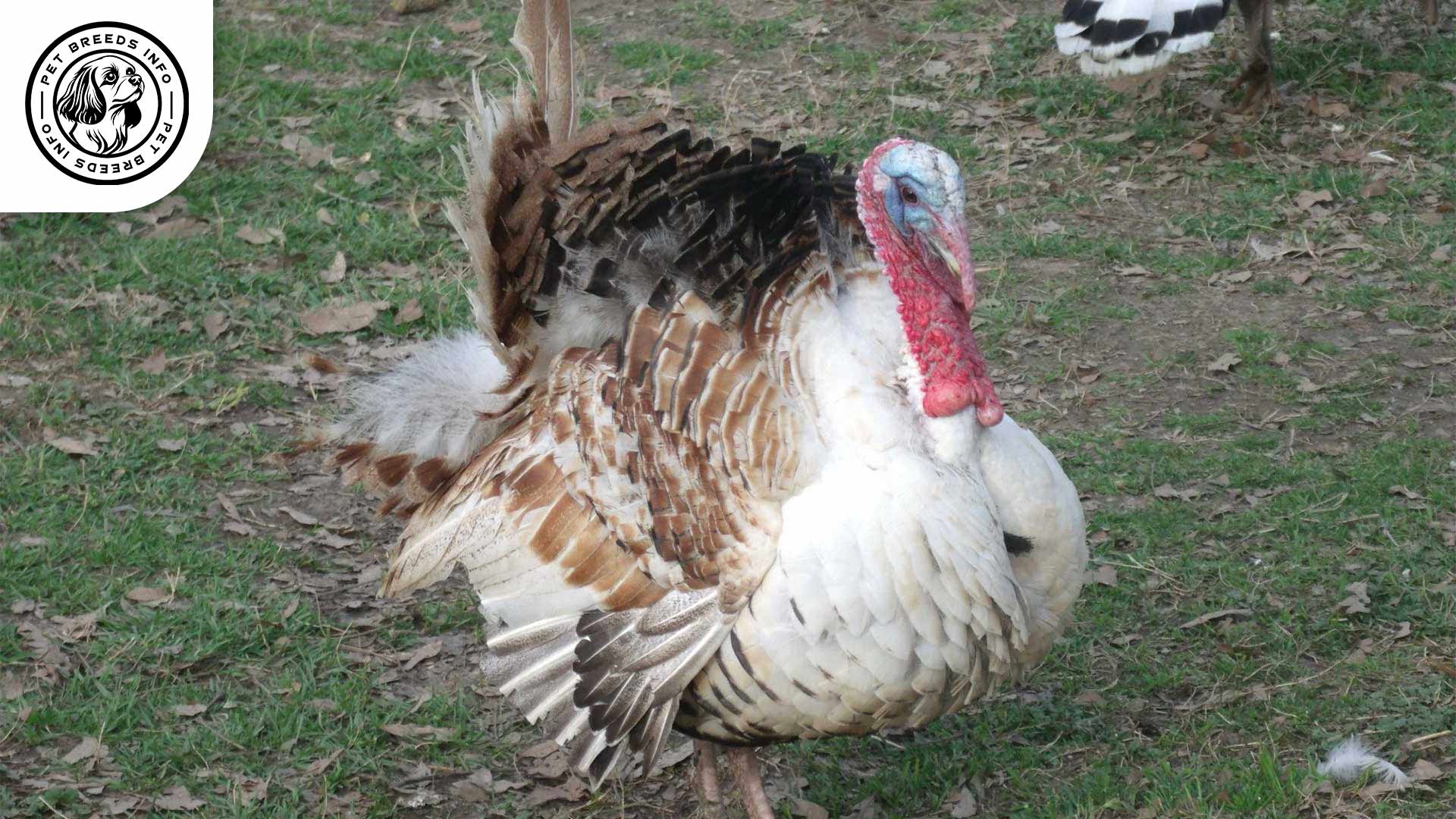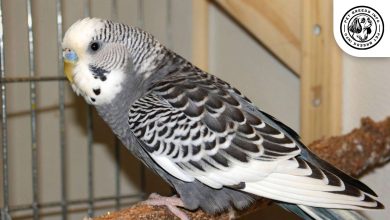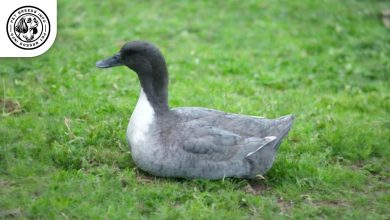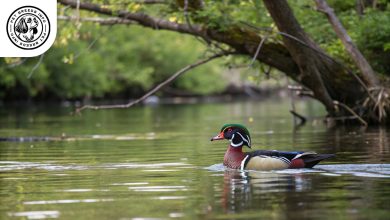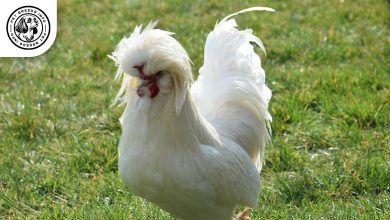Sweetgrass Turkey Breed: Personality, Lifespan, Food & Care
General Introduction of the Breed
The Sweetgrass Turkey is a striking heritage turkey breed known for its beautiful feather pattern and excellent meat quality. It does not have any widely recognized alternative names.
This breed originated in the United States and is believed to have been developed through selective breeding, with influences from heritage turkeys such as the Royal Palm and Narragansett. The Sweetgrass Turkey was bred for its unique coloration, strong foraging ability, and sustainable farming qualities.
Table of Contents
| Common Name | Sweetgrass Turkey |
| Scientific Name | Not mentioned in the text |
| Origin | United States |
| Size | Males: 18-30 pounds; Females: 10-14 pounds (medium to large-sized) |
| Lifespan | 5 to 10 years |
| Talking Ability | Not applicable (poultry) |
| Colors | White, black, tan, and bronze with intricate patterns |
| Noise Level | Not explicitly mentioned, but typical turkey sounds would be expected |
| Social Behavior | Can be social with humans, coexist well with other poultry, can be territorial |
Physical Characteristics
Sweetgrass Turkeys are medium to large-sized birds. Males (toms) typically weigh between 18 to 30 pounds, while females (hens) weigh around 10 to 14 pounds.
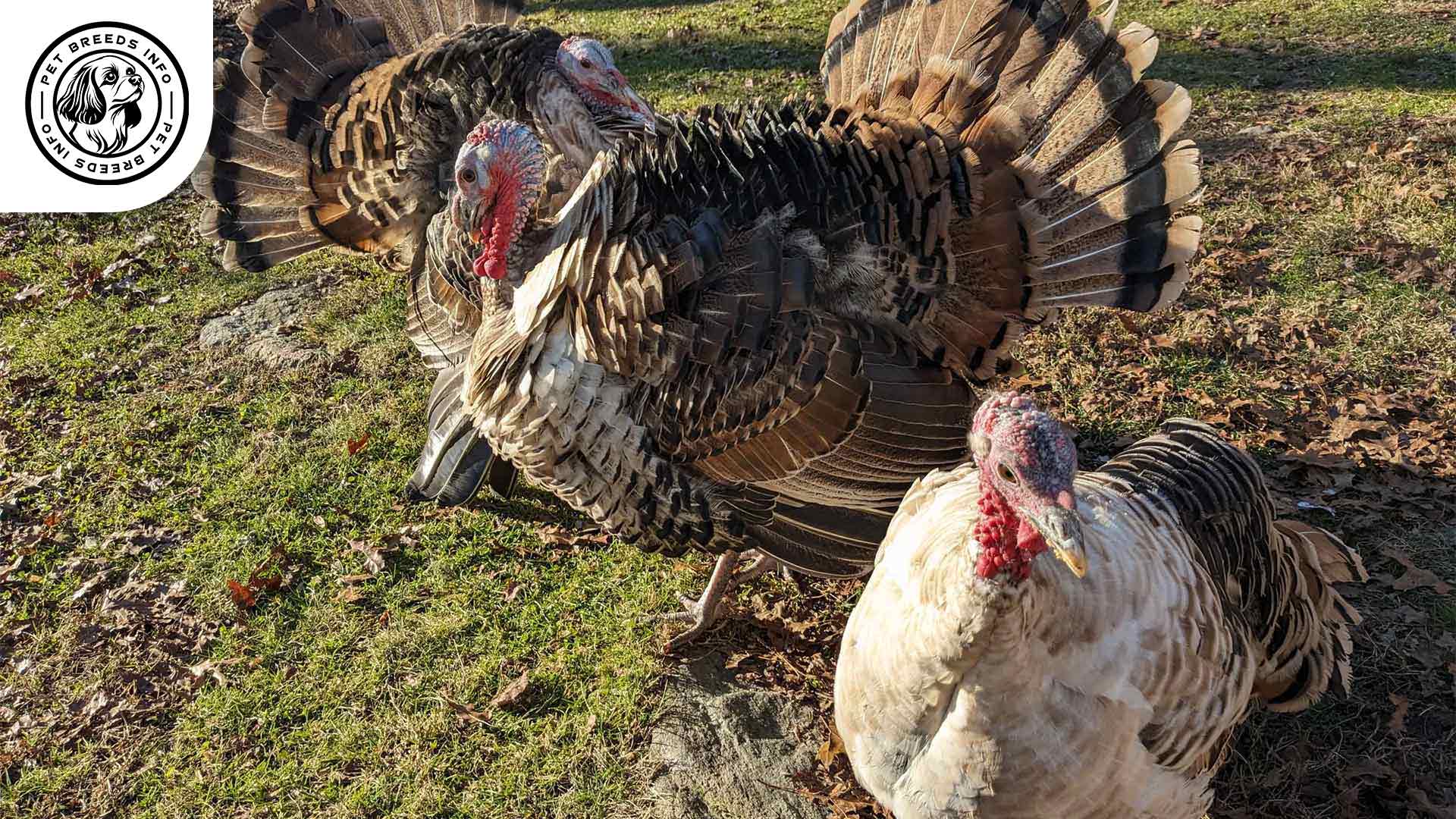
The breed is known for its distinctive feather color, featuring a mix of white, black, tan, and bronze with intricate patterns. This makes them highly recognizable among heritage turkey breeds.
They have dark eyes that contrast beautifully with their feather pattern. Their heads are featherless and can display the characteristic red, blue, or white skin typical of turkeys.
Their tails are well-developed, often displaying a fan-like spread with vivid striping. The legs are sturdy, supporting their active foraging tendencies.
Read More: Swallow Pigeon
Personality and Temperament
Sweetgrass Turkeys are intelligent birds with a strong ability to forage and adapt to different environments. They are highly active and require space to roam freely.
These turkeys tend to form attachments to their owners, especially if raised in a hands-on environment. They can be social with humans and may respond well to positive reinforcement training.
They coexist well with other poultry and farm animals but can be territorial, particularly during the breeding season. They are curious and alert, making them good for free-range farms.
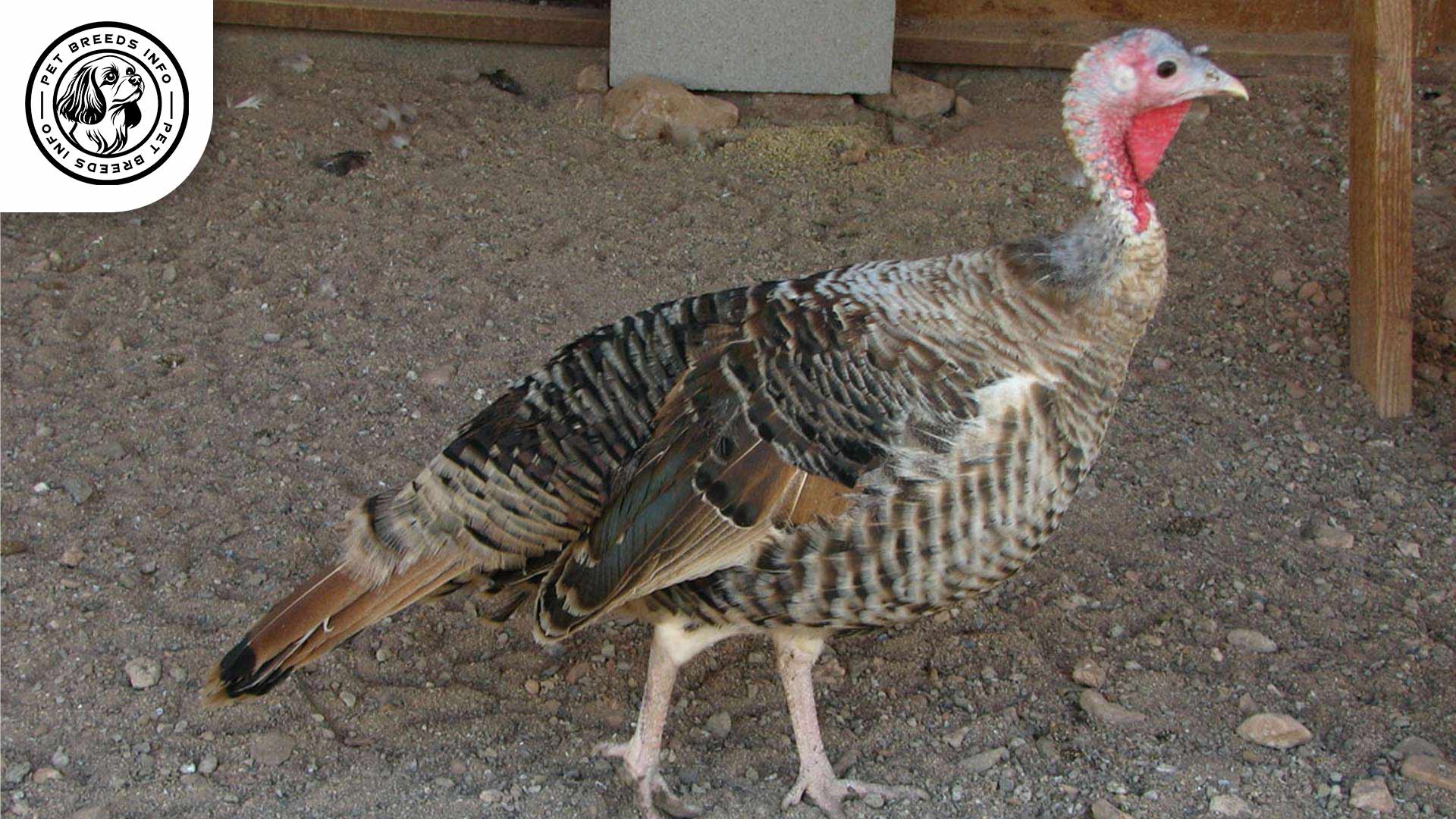
Care and Maintenance Requirements
Sweetgrass Turkeys require ample space for roaming and foraging. Ideally, they should be kept in a large free-range setup or a spacious enclosed run.
They thrive in outdoor environments where they can naturally graze on grass, insects, and seeds. A coop should provide shelter from extreme weather conditions.
Grooming needs are minimal as they naturally preen themselves. However, occasional health checks, especially for parasites, are necessary.
They are relatively hardy but should be protected from extreme cold or heat. Providing proper shelter and adequate ventilation is essential for their well-being.
Diet and Nutrition
A well-balanced diet includes high-quality turkey feed (containing protein and essential vitamins), along with access to natural forage such as insects, grasses, and grains.
Young turkeys (poults) require a high-protein starter feed to support healthy growth. As they mature, their diet can shift to layer feed or grower feed designed for turkeys.
Foods to avoid include processed foods, excessive starch, chocolate, avocados, and anything moldy or spoiled, as these can be harmful.
Turkeys should have constant access to fresh water, and their diet should be supplemented with grit and calcium for proper digestion and bone development.
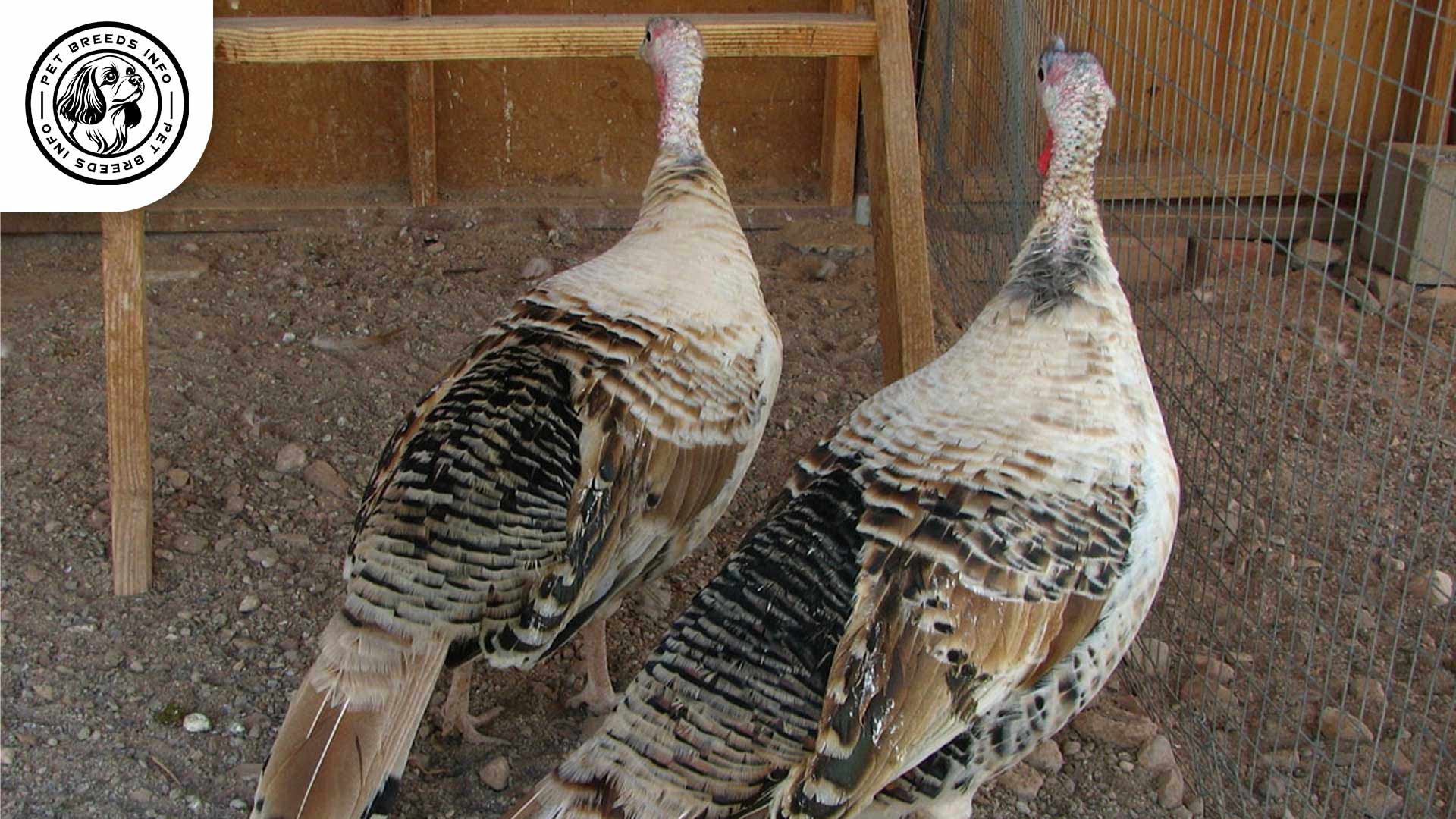
Health and Common Medical Issues
Sweetgrass Turkeys are generally hardy birds but are susceptible to common poultry diseases such as blackhead disease and respiratory infections.
Regular health checkups, deworming, and monitoring for mites or lice are essential to keeping them healthy.
Their expected lifespan can range from 5 to 10 years under good care.
Proper vaccination and biosecurity measures can help prevent infections and ensure long-term health.
Read More: White-fronted Amazon
Training and Behavior Management
Although turkeys are not traditionally trained like household pets, Sweetgrass Turkeys can learn to recognize their caretakers and follow simple routines.
Early handling and socialization help make them more comfortable with human interaction. They respond well to consistent feeding schedules.
Reinforcing positive behavior with treats and calm handling can make them more approachable and easier to manage.
Interaction with Other Animals and Humans
Sweetgrass Turkeys generally have a mild temperament and can get along with other poultry if introduced properly.
They are known to be gentle with children and non-aggressive toward humans when raised in a calm environment.
While they are social birds, they can also be independent foragers who do not require constant attention.
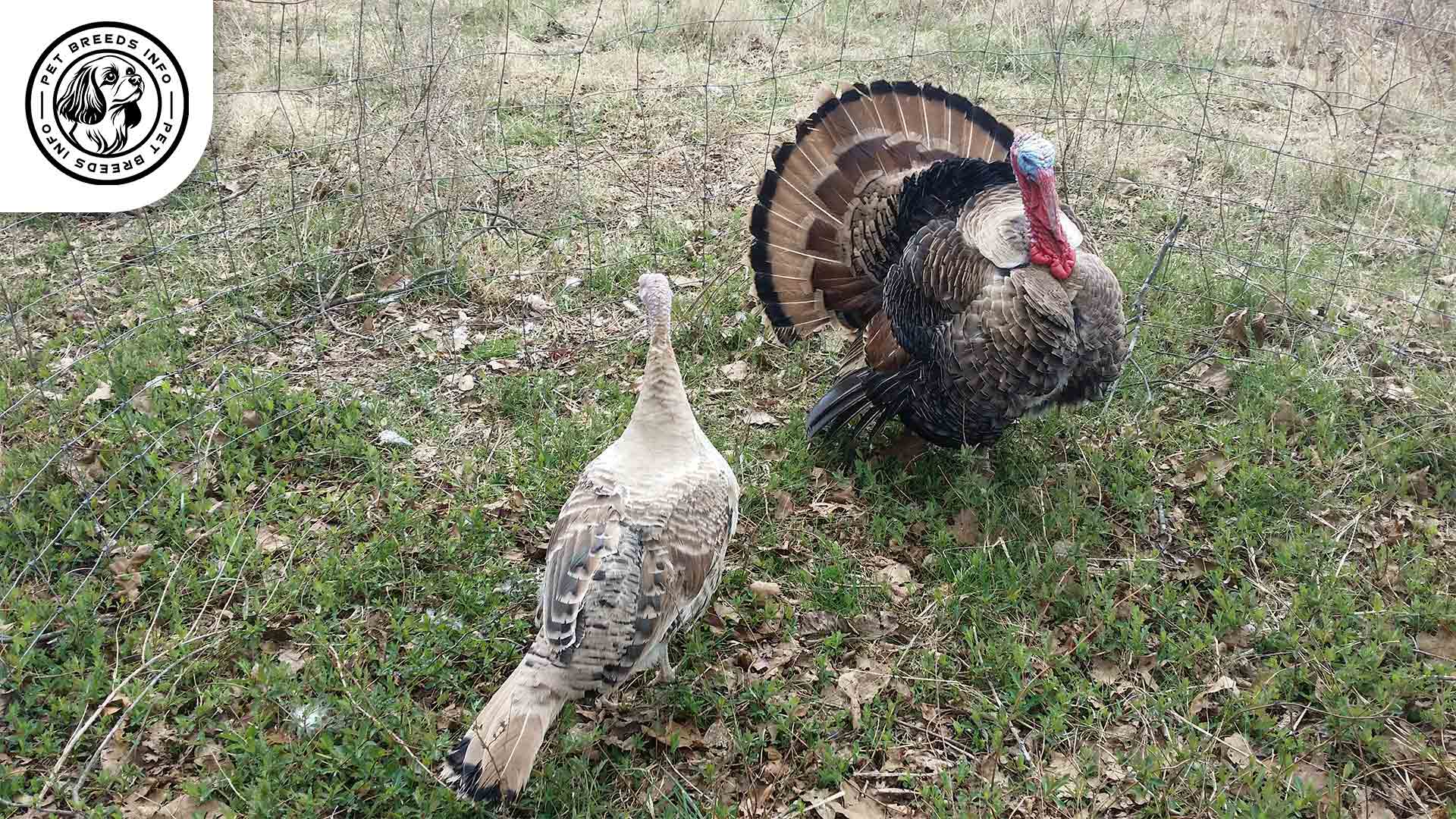
Price and Availability
The cost of a Sweetgrass Turkey varies depending on age, availability, and breeder. Poults typically range from $10 to $30, while mature birds can cost between $50 and $150.
It is essential to buy from reputable breeders or hatcheries that focus on healthy, disease-free populations.
Heritage turkey breeders, local farms, and poultry clubs are good sources for obtaining this breed.
Read More: Yellow-naped Amazon
Conclusion and Final Thoughts
Sweetgrass Turkeys are an excellent choice for poultry enthusiasts looking for a beautiful, hardy, and productive heritage turkey breed.
They require ample space for free-ranging and thrive in an environment where they can forage naturally.
Whether for meat production or as ornamental birds, they are a rewarding breed to raise with proper care and attention.
Prospective owners should consider their space, environment, and feeding needs before committing to owning Sweetgrass Turkeys.
FAQ
What is a Sweetgrass Turkey known for?
They are known for their beautiful feather pattern and excellent meat quality.
How big do Sweetgrass Turkeys get?
Males weigh 18-30 pounds, and females weigh 10-14 pounds.
Are Sweetgrass Turkeys good for free-ranging?
Yes, they have strong foraging abilities and thrive in free-range environments.
What colors are Sweetgrass Turkeys?
They have a mix of white, black, tan, and bronze feathers.
How long do Sweetgrass Turkeys live?
Their expected lifespan is 5 to 10 years.
